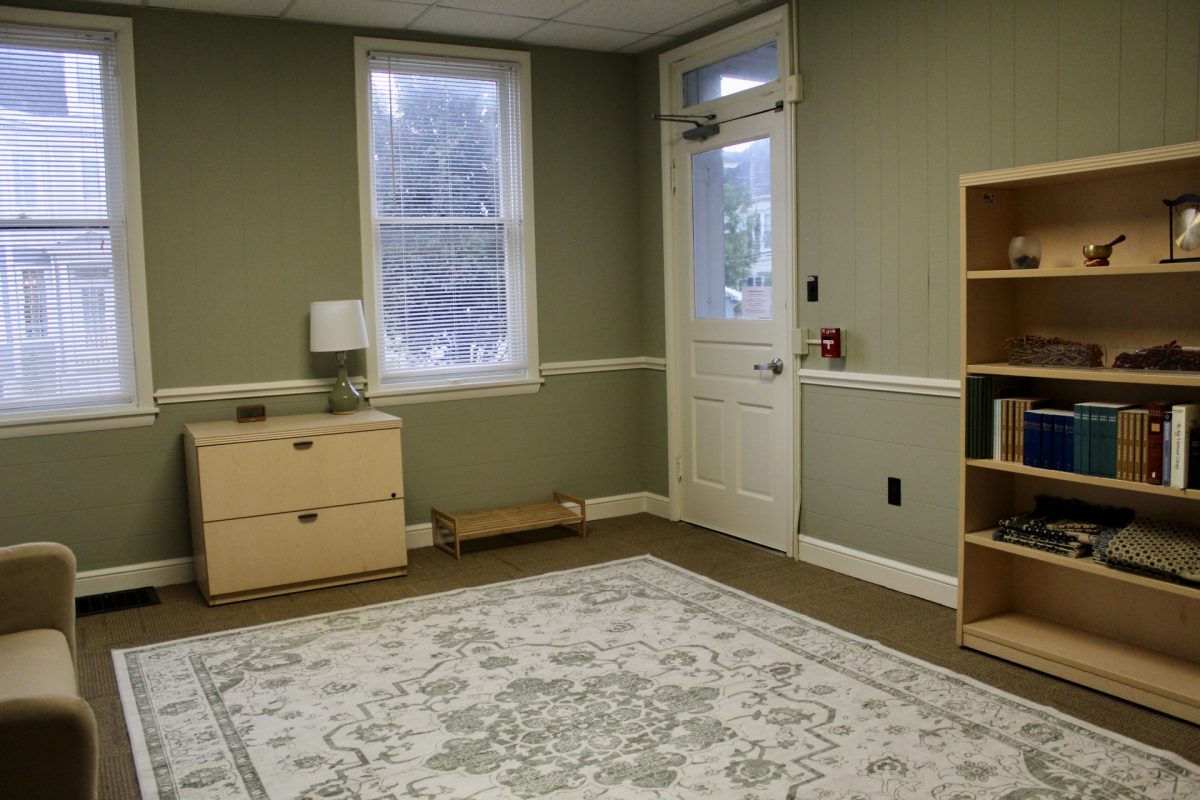At only one and a half years old, Sami Steigmann was subjected to medical experiments by Nazi doctors during the Holocaust, and nearly 84 years later, he shared his story with students at the Asbell Center for Jewish Life. Steigmann has used the trauma of his youth to become a motivational speaker, inspiring people across the United States.
Steigmann describes his mission with the Hebrew word “Emet,” meaning truth. Using an English acronym, Emet spells out his mission to educate, motivate, empower and tolerate. Steigmann learned about his passion for motivational speaking after his first time talking to a sixth-grade class. He received letters from the students after his presentation, and one letter stuck out. The student wrote that Steigmann’s story was overwhelming, and that they will share his story with their children.
His talk began by quizzing students about the Holocaust. Students repeated after him to get the correct pronunciation of death and labor camps that littered Eastern Europe during World War II. Originally born in Czernovitz, present day Ukraine, Steigmann and his parents were deported to Mogilev-Podolsky labor camp. All three survived the war, but Steigmann lives with ailments relating to his experimentation every day.
After a short history lesson, he cited the beginning of the Holocaust with the conclusion of World War I and the Treaty of Versailles. The policies enforced on the defeated Germany created conditions that allowed Adolf Hitler to come into power. He explained that there were six million Jewish people who were killed during the Holocaust, an incomprehensible number in terms of human casualty. To help students realize the weight of that many deaths, he shared that if we were to spend a minute of silence for each victim, we would be silent for 11 and a half years.
Although he was kept in a labor camp as an infant, Steigmann does not think of himself as a victim, but as a survivor. Since he was so young and did not remember his own experience, he did not consider himself to be part of the children of the Holocaust and did not think himself a survivor of the Holocaust until 2003. It was at this point when he decided to visit the Holocaust Museum and Memorial in Washington D.C. during Holocaust Survivor Day.
Steigmann opened the floor for questions, and a community member asked him how he deals with Holocaust deniers. Plain and simple, Steigmann said that he does not. He elaborated that you cannot change anyone, only their perspective. He encouraged students to do their own research, and compared having a stance on the Holocaust to being knowledgeable on the conflict in Gaza and climate change.
When students had no more questions left to ask, Steigmann encouraged them to ask him about his “strong opinions on current events.” Students did not, so he shared that he was optimistic on the outcome of the war and encouraged those with differing views to “disagree and hug.”
You can learn more about Sami Steigmann on his website, samispeaks.com, as well as find a link to the slideshow that he shared with students.



